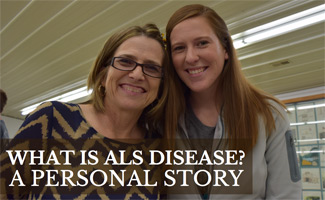No Two People Share The Exact Same Symptoms of Asperger’s
 Asperger’s symptoms are going to vary widely from person to person. No two people share the exact same experience with this developmental disability, often making it hard to define. In cases where there is a possibility that Asperger’s is inherited it may be even harder to define since parents may assume the child s just displaying a parental trait. Asperger’s, I like any other part of the autism spectrum n that it is actually made up of a collection of symptoms that make it difficult or even impossible to perform normal daily tasks, even though Asperger’s is known as a high functioning form of autism.
Asperger’s symptoms are going to vary widely from person to person. No two people share the exact same experience with this developmental disability, often making it hard to define. In cases where there is a possibility that Asperger’s is inherited it may be even harder to define since parents may assume the child s just displaying a parental trait. Asperger’s, I like any other part of the autism spectrum n that it is actually made up of a collection of symptoms that make it difficult or even impossible to perform normal daily tasks, even though Asperger’s is known as a high functioning form of autism.
Specific Aspergers Symptoms
As we grow, we hit certain developmental milestones that may indicate that we are developing at a “normal” pace. For instance, most children go from crawling to walking around the age of one. By then they have said a few words and can indicate to some degree what they need or want. Indeed, sometimes children with Asperger’s hit some of these milestones and later may regress rather than move forward.
Though children with Asperger’s often show symptoms in the way of a lack of speech or a speech that may seem limited or formal there are other signs that may not be as obvious because they may not come in the form of regression, but of physical habits that may seem odd to others.
Eye Contact
Children with Asperger’s often lack the ability to make eye contact. In fact, they may seem as if eye contact is painful to them, something that may get worse as they get older and understand in some way that there is a certain intimacy that comes with making eye contact. This may be especially noticeable during the teen years when so many things change in the human body. The individual may eventually reach a point at which they are comfortable making eye contact, but this would come after much practice in safe situations.
Affection
Affection seems to go to extremes in children who have Asperger’s. With some people, even their own parents, they may seem to avoid affection. With others, they may be overly affectionate. It’s likely that this has something to do with heightened senses and may have nothing at all to do with the person they are avoiding being affectionate with or seeming to cling to. For instance, a child may not want to cuddle with his mother but may be extremely affectionate to a neighbor.
When it comes to affection in adults with Asperger’s, they may appear to be uncaring because they lack awareness of other peoples’ craving for affection. This can make relationships and bonding with other people quite difficult. It’s best if there is a direct communication concerning a need for affection in order for the individual with Asperger’s to be able to understand the need for affection.
Physical traits
There are no facial characteristics that are associated with Asperger’s, but there are some physical traits in the way of behavior that are associated with Asperger’s. Some children walk on their tip toes on a regular basis. They may also be inclined to rock themselves back and forth to calm themselves down or even to beat their heads against a hard surface. This is part of the heightened senses experience, where these actions produce pleasurable and comforting feelings. They may also like to “pet” or “brush” people or objects, as they enjoy the way the surface they are touching feels.
There is a complete lack of body language and fluid movement. The individual often has a flat affect and a lack of facial expressions.
Speech
Children who have Asperger’s may be slow to develop speech. Others may develop speech then begin to seem to lose their language or the language may develop into a formal kind, where the child may use formal words rather than casual ones. The lack of body language is a large part of Asperger’s syndrome and will become more noticeable as the child gets older and the expected use of tone, pitch and inflection do not seem to be a part of the communication style.
In fact, most children with Asperger’s are unaware of what these things mean and do not understand them when people use them. Sarcasm, for instance is not a part of their conversation style because they tend to take words literally. Children and adults with Asperger’s may also dominate conversations and be completely unaware of any lack of interest the listener may display. They may become excited as they speak of subjects that interest them.
Since younger children have an avid interest in “self” and limited interest in others due to the very nature of their age, this kind of talk may seem appropriate and may even have the effect of displaying a high level of intelligence for one so young. The key here is that the child is usually very focused on a particular subject matter and may not show that same level of interest or intelligence in other areas that are more age appropriate.
Adults who display these traits are often thought of as egotistical or self-centered. While they don’t seem to be offended by other peoples’ lack of interest in what they have to say, they aren’t usually inclined to discuss new topics either. This is not to be confused with narcissism because there is no need to prove one’s worth in this situation. There is simply an extreme focus on specific topics.
Social Interactions
Social interactions tend to be extremely limited for children who have Asperger’s. Parents may think that their child is very shy, but will eventually notice that the child has limited social inclinations even with those he or she has known for quite some time. If they do play with others, they tend to engage in what is known as parallel play, where two or more children may sit near each other but be playing completely different games.
Teens and adults tend to isolate themselves or stay within a particular social cluster. There is an extremely limited amount of any kind of intent to meet new friends or initiate any kind of social contact.
Diet
Most children are picky about what they eat. Much of this comes from how they see others react to food. They may also respond to how the food looks or feels before they ever notice how it smells or tastes. Some of this comes from a child’s natural instinct for survival. Some of it comes from the food being a new or unusual experience for them. After all, a child’s senses have not yet been diluted by years of experience and assault by the world around them. A child with Asperger’s tends to be extreme about these matters. They may require that their food is a certain shape or color. They may need to feel a certain texture to be comfortable eating the food. Again, much of this behavior is due to the heightened senses. For instance, the child may not eat broccoli, but may actually like the taste of broccoli. They just don’t like the way it feels in their mouth or the way it looks to them.
Motor Development
Asperger’s lends a layer of difficulty to various stages of motor development. It’s not uncommon for children with Asperger’s to have difficulty learning to walk and do other tasks, such as catch a ball. Once they learn to walk, it may lack grace and fluid movement, making it seem as if the child is lumbering along. They may also have problems with fine motor skills that will affect coordination in tasks like painting, writing and drawing.
Inflexibility
Asperger’s is a disorder that causes its victims to absolutely thrive on a set schedule. Deviations from the schedule can cause an extreme amount of stress. Any changes need to be handled by degrees if possible, so that the individual is eased into the change rather than shocked by it. There is a certain amount of obsession with scheduling. The more that things stay the same, the easier it is for someone with Asperger’s to have a calm day without any outbursts or moments of extreme agitation.
Phobias
Part of heightened senses sometimes includes heightened fears. The fear may involve and object, place, animal or any number of other things, but is linked to the individual’ perception of the object in some way. Some of these fears may originally seem reasonable, such as a fear of bees. Later, it may extend to unreasonable proportions, such as going from a fear of bees to a fear of anything small that may be in the air.
Outbursts
Many children have tantrums and many children with Asperger’s are mistaken for having tantrums when they really aren’t. This isn’t a matter of a spoiled child. This is a matter of a child who feels that their senses are being assaulted or who is overwhelmed by some sort of stimuli or fear.
Adults may learn to deal with their stress in such a way as to avoid outbursts of such magnitude, but may struggle with these issues in some way. Hopefully, by adulthood they have found a coping skill that enables them to handle these occasions in such a way as to avoid doing any damage to themselves or those around them.
Heightened Senses
Heightened senses seem to be the very foundation of most of the Asperger traits. Any individual responds to how a stimulus affects their senses. Since the stimulus has an extreme impact on the senses of someone with Asperger’s, the reaction of the person with Asperger’s may tend to be extreme. For example, if the individual has a heightened sense of sound, some sounds will actually be physically painful to them an others may cause a pleasure that most people wouldn’t experience form that sound. If the sense of sight is heightened, certain lights or color may be painful to them while others give them pure pleasure.
Extreme I.Q. Scores
Part of a psychological evaluation inevitably includes an I.Q. test. This I pretty standard for any type of psychological evaluation to be complete. The I.Q. test measures the intelligence of a person. The method of testing involves some degree of social awareness that a person with Asperger’s may not possess or be able to use in such situations. Testing accommodations would change the outcome of the test in such a way as to render it unreliable. It is not unusual for someone with Asperger’s to receive very high or very low cores, which may indicate that they are either gifted or challenged in some way. It’s important to note that these tests do not do justice to people with Asperger’s simply because they process information in a different way and the social details of the test will hinder their performance even as their ability to lend great focus to one area may heighten their performance. Either way, there is not an I.Q. test that can give reliable results as to the intelligence level of someone with Asperger’s.
Fixations
Just as Asperger’s causes a lack of social awareness, it often causes a certain ability to focus and even obsess about certain topics. For instance, most children are able to create a fantasy world in which to put their imagination to use. They may make up characters or modify existing characters. Children with Asperger’s are unable to do this because they see those characters as fixed and they must work within those guidelines. In fact, they may know everything there is to know about a certain character they are interested in, except for how to make that character go outside of his or her normal behavior.
These fixations often involve specific rules or sensations. For instance, one child might modify Superman so that he is not bulletproof, but the child with Asperger’s will not agree to that unless certain facts happen to make that possible, such as the presence of kryptonite. Fixations usually endure through time and are based on some type of rule system or mathematical system.
Different Experience For Everyone
One of the most important facts that an observer should remember is that Asperger’s is a different experience for everyone. For anyone to be considered diagnostically as having Asperger’s, they must exhibit more than one trait of the disorder.
While some people with Asperger’s may only have a couple of the traits, others have them all. However, they will each experience them in their own way. This is one of the reasons that Asperger’s is so difficult to diagnose and treat. Asperger’s symptoms are usually obvious during early childhood, but may go undetected even through adulthood. It is the symptoms of Asperger’s that are treated individually and collectively, depending on the individual and the symptoms.
There is much speculation concerning the cause of the symptoms of Asperger’s, but to date there is no given reason that some people experience this disorder while others don’t. Some of the suggested reasons are immunizations, chemical processing of foods and even evolution. While no conclusions about the cause of Asperger’s or the rest of the autism spectrum have been drawn yet, there is evidence to show that the amount of people who have this disorder is growing every day. In fact, the rate of growth of the amount of people who may get Asperger’s now exceeds the rate of growth of some cancers.





Well written. Thank you.